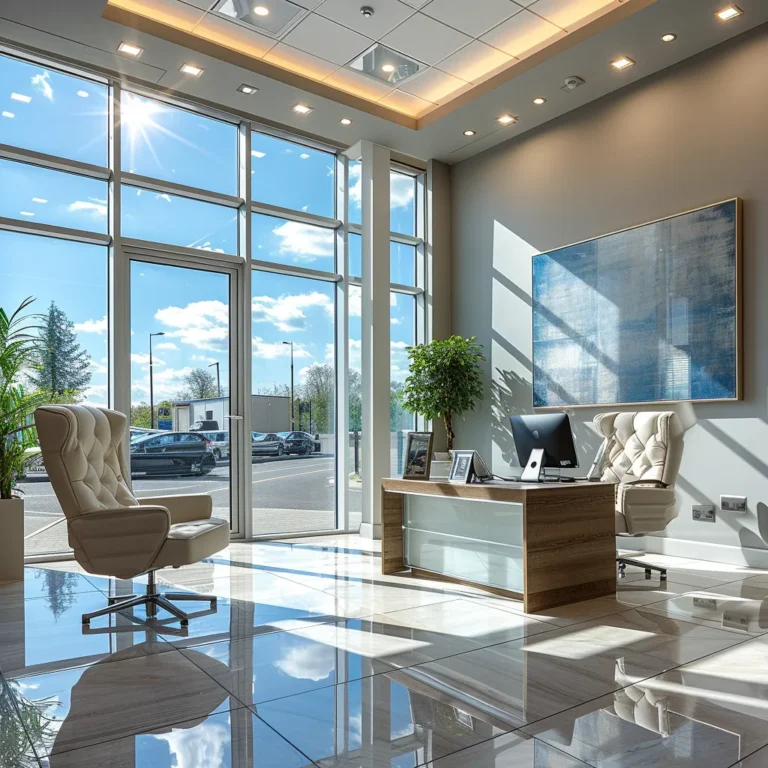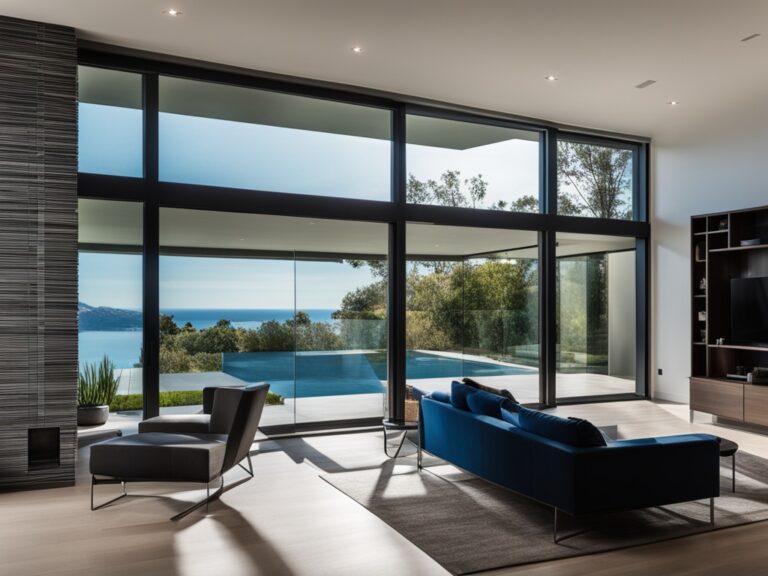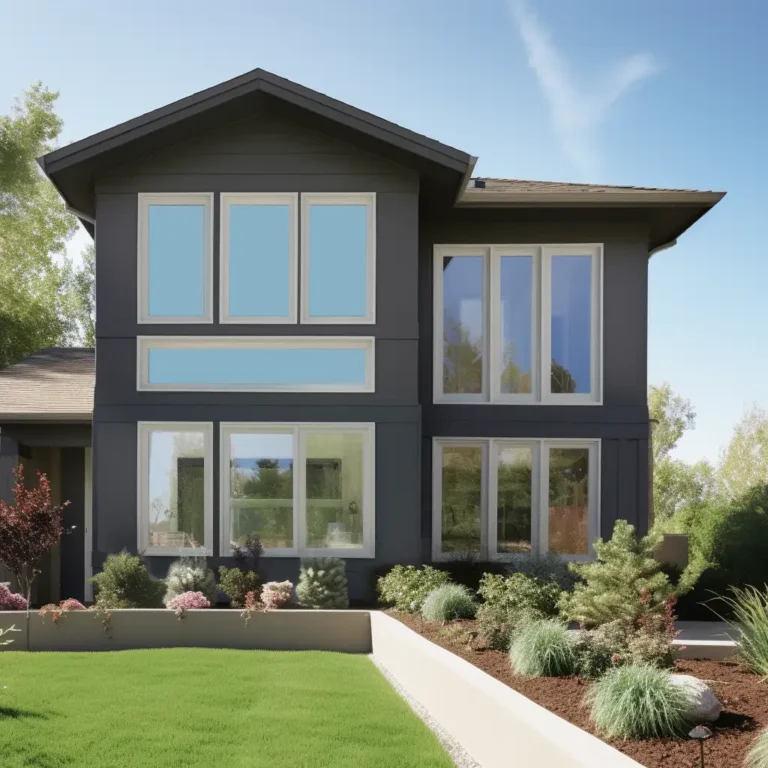Environmental & Health Benefits of Window Tinting in Perth
What Are The Environmental and Health Benefits of Window Tinting in Perth?

Environmental & Health Benefits of Window Tinting in Perth – Window tinting helps keep your house cool. It blocks up to 99% of harmful UV rays, protecting you from skin damage and eye strain. This is especially useful in Perth’s hot weather. Tinted windows also reduce glare, keeping your family safe.
For the environment, tinted windows mean less need for air conditioning. This lowers energy use and reduces carbon footprint. By keeping a house cooler, window tinting can cut down on urban heat islands too.
Introduction to Window Tinting

Do you dread the summer months in Perth because of the intense heat and harsh sunlight? Are you tired of skyrocketing air conditioning bills that never seem to drop no matter what you do? Well, you’re not alone.
Many homeowners and car owners face similar issues.
Here’s a cool fact: did you know that window tinting can block up to 99% of harmful UV rays? This simple solution reduces glare and protects your skin from harmful ultraviolet radiation — which can lead to skin cancer.
Plus, it helps keep your home or car cooler by rejecting solar heat.
In this blog post, we’ll explore the environmental and health benefits of window tinting in Perth. You’ll learn how it improves energy efficiency, protects against UV rays, and even enhances privacy.
Ready for more? Keep reading!
Key Takeaways
- Energy Savings: Window tinting cuts down heat, reducing the need for air conditioning. It can lower energy bills by up to 30%.
- UV Protection: Tinting blocks up to 99% of harmful UV rays, protecting your skin and eyes from damage.
- Comfort and Safety: Tinted windows keep your house cooler by 10–20 degrees Celsius. They also improve privacy and reduce glare for the safety of your family.
- Environmental Impact: Less reliance on air conditioning reduces carbon footprint. This helps in lowering emissions and urban heat islands.
- Durability and Cost Efficiency: High-quality window tints last over 15 years. They save money on cooling costs and protect interiors from fading.
What is window tinting?
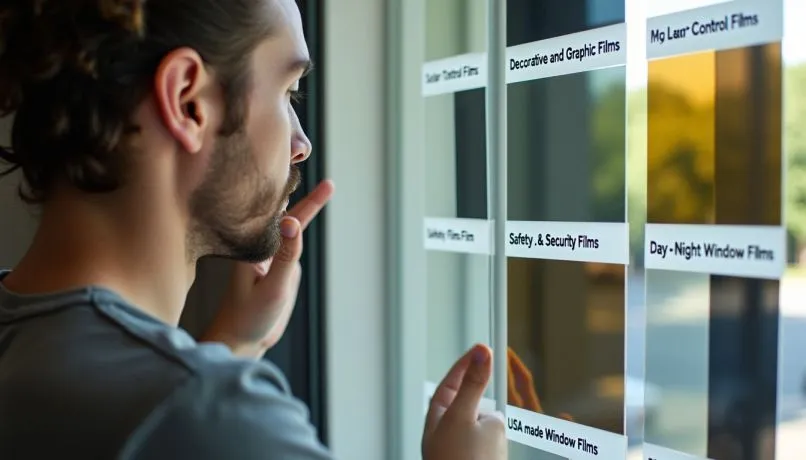
Window tinting is a special film applied to windows. It blocks harmful UV rays and reduces glare. Many people use it on car windows for better protection and cooler interiors. Homeowners also add window tinting to cut down energy costs.
This layer of protection makes a big difference in comfort!
How does window tinting work?

Window tinting works by adding a thin film to windows. This film blocks solar radiation, preventing heat and harmful UV rays from entering buildings or cars. The film has special materials that reflect and absorb sunlight.
These tinted films reduce energy use by keeping spaces cooler in summer. They cut down the need for air conditioning, which lowers power bills. Tinted windows also protect against UV rays, reducing the risk of skin cancer and fading of interiors.
Why is window tinting popular in Perth?
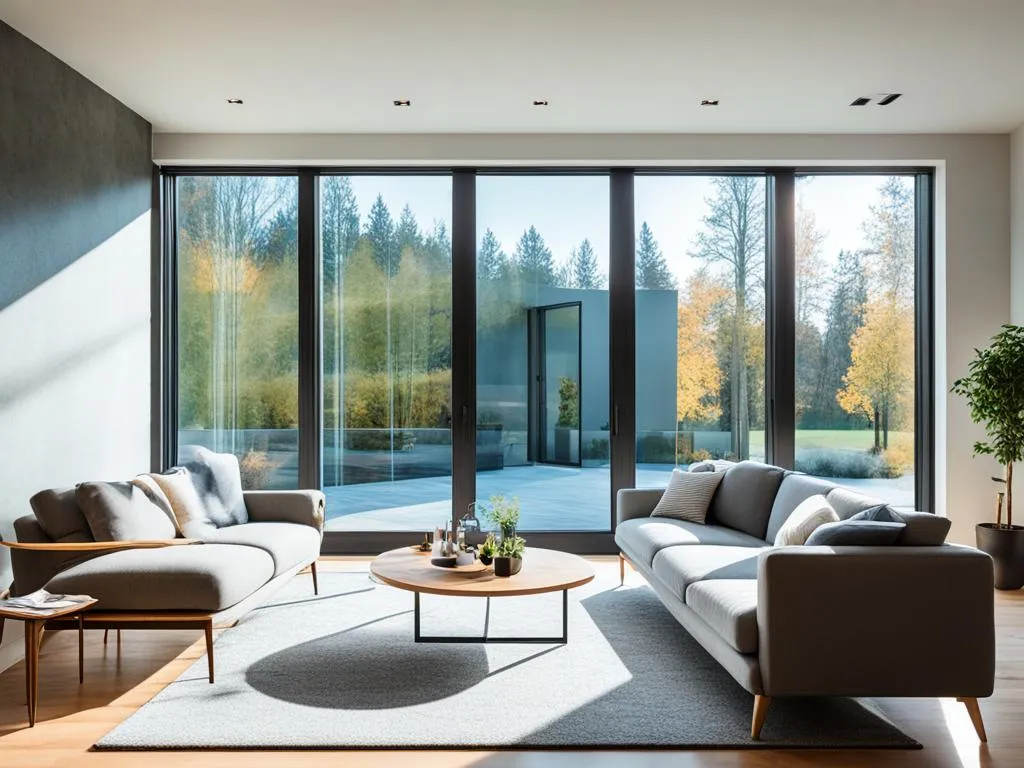
Window tinting is a hit in Perth. It keeps houses cool, even on hot days. Tinting lowers inside temperatures by 15-20 degrees Celsius. This makes your house more comfortable.
Tinting blocks 99% of harmful UV rays. This protects people and reduces glare for your family. High-quality ceramic window films help to stop interiors from fading and cracking too.
Enhanced privacy and security are other big reasons. Tinted windows make it harder for outsiders to see inside your house, keeping valuables safe.
Environmental Benefits of Window Tinting

Tinting your windows helps cut down energy use. It lowers the heat inside your home or car by blocking up to 99% of harmful UV radiation. Less solar energy means you don’t need the air conditioning as much.
This saves on power bills and reduces carbon footprints.
Also, tinted windows keep buildings cooler in hot weather. They help manage indoor climate without extra cooling systems. Urban areas with many tinted buildings see fewer “heat islands.” These are spots where temperatures rise due to human activities and structures.
Tinting provides a cool solution for a hot problem.
With window tint film, both residential and commercial spaces get better insulation. This leads to big cost savings over time—good for wallets and the planet!
How does window tinting reduce energy consumption?

Window tinting cuts sunlight entering your home. This keeps rooms cooler, so you use air conditioning less. Studies show that window tinting can lower air conditioner use by up to 25%.
Less air conditioning means less energy used. This helps reduce carbon output and saves money on electricity bills. Now let’s see if window tinting can help reduce the carbon footprint.
Can window tinting help in reducing carbon footprint?
Yes, window tinting can help reduce carbon footprint significantly. It lowers energy consumption by keeping car interiors cooler. This means less need for air conditioning, which saves fuel and cuts emissions.
Tinted windows can lead to a potential 20% reduction in carbon emissions.
Tinted windows also enhance fuel efficiency by at least 5%. By blocking out heat from the sun, cars use less energy to stay cool. Less energy usage translates to lower greenhouse gases released into the air.
So, tinting your car’s windows is not just good for you; it’s great for the environment too!
How does window tinting contribute to climate control?

Window tinting cuts down heat transfer by up to 80%. This keeps indoor spaces cooler. It can help lower cooling costs by up to 30%, which means less electricity usage. Less energy use leads to a smaller carbon footprint.
Tints act as thermal insulators. They can reduce solar heat gain by up to 78%…improving energy efficiency. This helps control indoor climate better, making homes and offices more comfortable.
It also eases the work of air conditioners, making them last longer and work better.
What impact does window tinting have on urban heat islands?

Urban areas get very hot in summer. This is known as the urban heat island effect. Tinted windows help reduce this heat. They block out the sun’s rays, making buildings cooler inside.
Less need for air conditioning means lower energy use and fewer carbon emissions. This cooling also helps make city streets less hot overall. Window tinting can be a small but important step to combatting urban heat islands.
Health Benefits of Window Tinting
Addressing urban heat islands is key, but window tinting also boosts health. It blocks harmful UV rays, cutting the risk of skin cancer and other UV-related issues. Tinted windows can also improve indoor air quality by reducing pollen and allergens.
Window tints help keep rooms cool. They lower the need for air conditioning, making homes more comfortable. Plus, they provide shatter protection in case a window breaks—adding an extra layer of safety for your family.
How can window tinting protect against harmful UV rays?
Window tinting blocks up to 99% of harmful UVA and UVB rays. This helps reduce the risks of skin cancer and premature ageing. UVA rays can cause long-term skin damage, while UVB rays can burn your skin.
Tinted windows act as a shield. They stop these harmful rays from reaching you indoors or in your car. Protecting against these rays is one of the best ways to keep your skin safe.
Next, let’s explore how window tinting improves indoor air quality…
In what ways does window tinting improve indoor air quality?
Window tinting helps keep indoor air quality high. Solar heat gain reduces with window films, leading to stable temperatures inside buildings. This means less need for air conditioning, which can cut down on humidity levels.
Lower humidity helps prevent mould and mildew from growing.
Tinted windows also block harmful UV rays from entering your home. These rays can break down materials like furniture or paint, releasing chemicals into the air. By stopping UV light, window tints reduce this risk and help maintain cleaner air indoors.
How does window tinting enhance privacy and security?
How does window tinting enhance privacy and security?
Tinted windows block the view from outside, keeping prying eyes away. This is great for homes and businesses. Outsiders cannot peek in to see valuables or activities. It adds a layer of security.
Potential intruders face a tough time guessing what’s inside. They can’t plan break-ins easily if they can’t see clearly. Professional tinting ensures the film lasts long and looks good.
**Cost-Effectiveness of Window Tinting**
What are the long-term health benefits of tinted windows?
Tinted windows block harmful UV rays. This reduces skin damage and lowers the risk of skin cancer. Sun protection is key to keeping your skin safe.
They also protect your eyes from damage caused by UV light. Over time, this helps prevent cataracts and macular degeneration. Consistent use of window tinting cuts down on cumulative UV exposure, making a big difference in the long run.
Cost-Effectiveness of Window Tinting
Window tinting saves you money long-term. Tints reduce reliance on air conditioning, cutting energy costs and fuel consumption. They can lower a car’s interior temperature by 10–20 degrees, making it more comfortable inside.
Residential and commercial window tinting lead to financial savings too. Tinted windows keep homes and offices cooler, reducing energy bills especially in sunny climates like Perth.
Plus, maintaining vehicle interiors through tinting prevents fading, which means fewer replacements and repairs—another cost saver!
Is window tinting a worthwhile investment for homeowners?
Energy bills can drop significantly with window tinting. It blocks heat from the sun, reducing reliance on air conditioning. This saves money and cuts down energy use—a win for both your wallet and the environment.
Protection from harmful UV rays is another big plus. Tinted windows preserve interior furnishings by blocking up to 99% of UV radiation. High-quality tints can last over 15 years, making them a durable investment that pays off in many ways.
How does window tinting affect energy bills?
Window tinting can reduce energy bills by a large amount. It rejects up to 84% of the sun’s heat. This means you use less air conditioning in summer. Less AC means lower cooling costs—up to 30% for homes with poor orientation.
Additionally, window tints help keep your home cooler naturally. Your cooling system does not have to work as hard. This saves money and makes your home more eco-friendly.
What are the long-term savings associated with window tinting?
Window tinting can cut your energy bills. It keeps heat out in summer and holds warmth in during winter. This means your heating and cooling systems work less, saving you money.
You also spend less on repairs and maintenance because window tints block harmful UV rays. These rays can damage furniture, floors, and even car interiors over time. With window tinting, you protect these items from fading or cracking, which saves you replacement costs.
Choosing the Right Window Tinting Solution
Pick window films that block over 99% of harmful UV rays. This keeps your skin and eyes safe. High-quality tints make your car cooler by cutting heat. Good tinting also lets fresh air in but keeps outdoor allergens out.
Select tints that hide valuables from thieves to boost security. Think about options that lower pollen exposure to help with allergy symptoms too. Always choose a trusted tinting service in Perth for the best outcomes.
What types of window tinting are available in Perth?
Choosing the right window tinting solution starts with knowing your options. In Perth, you can pick from several types of car window tinting films. These include Dyed, Metalised, Hybrid, and Ceramic films.
Dyed film reduces glare and absorbs heat well. It offers a dark shade and is budget-friendly. Metalised film reflects heat and blocks UV rays but may affect electronic signals in your car.
Hybrid film mixes dyed and metal layers for balanced performance without signal problems. Finally, Ceramic film is top-notch for blocking heat and UV rays while allowing electronic signals to pass freely.
How do you choose a reputable window tinting service?
Perth has many window tinting options. Find a company with good experience and positive reviews. Search for providers who offer various high-quality tints that ensure UV protection and heat rejection.
Check if the company complies with local regulations for window tinting. Companies offering free estimates and clear consultations are a bonus. Ensure they have strong warranties and after-care services too.
What factors should you consider when selecting window tinting film?
Consider the primary purpose of tinting. Do you need privacy, glare reduction, UV protection, or heat reduction? Each film type offers different benefits. For example, some tints block more UV rays to protect your car’s interiors.
Evaluate durability and longevity. Choose a film with a warranty against bubbling, peeling, and colour change. Also, check local laws on tint darkness and reflection to avoid fines.
Not all films meet legal standards for visible light transmission in Australia.
Conclusion
Window tinting in Perth offers many benefits. It saves energy and helps the planet. It protects against harmful UV rays and enhances privacy. Tinted windows make homes cooler and safer too.
Ready to make a change? Tint your windows and enjoy a healthier, greener future!
What are the key takeaways about window tinting in Perth?
Tinting your windows in Perth has many benefits. It helps the environment and keeps you healthy. Tinting can save energy by keeping homes cool without much air conditioning. It also blocks harmful UV rays, which is good for your skin and eyes.
Plus, it gives privacy and makes homes safer.
A healthier and more sustainable future is possible with window tinting. Start today!
How can window tinting contribute to a healthier and more sustainable future?
Window tinting blocks up to 99% of harmful UV rays. This protection reduces skin cancer risks and helps keep your skin healthy. It also lowers interior temperatures by 10–20 degrees, making homes and cars cooler without extra air conditioning.
Tinted windows save energy and cut down on carbon footprints. They act as barriers against allergens, providing relief for asthma sufferers. Plus, window tints improve privacy and security by resisting tampering and reducing auto theft risk.
FAQs
1. What are the environmental benefits of window tinting in Perth?
Window tinting helps reduce glare and heat from the sun, which means you use less air conditioning. This saves energy and reduces your carbon footprint.
2. How does window tint provide health protection?
Tinted windows block harmful UV rays, reducing the risk of skin cancer and protecting your car’s upholstery from fading.
3. Can window tints help with safety while driving at night?
Yes, automotive window tints can reduce glare from headlights and streetlights, making it easier to see at night.
4. Are there different levels of tint available for cars?
Yes, there are various levels of automotive window tints to choose from based on how much light they block and how dark you want your windows to be.
5. Is it worth investing in home window tinting as well?
Absolutely! Home window tinting offers many advantages like reducing heat inside your house, cutting down on energy bills, and providing privacy without blocking natural light.
6. What should I look for when choosing a professional service for installing car or home window tints?
Look for reputable auto or home window tinting services that offer high-quality films approved by the Window Film Association; this ensures durability and effectiveness.


